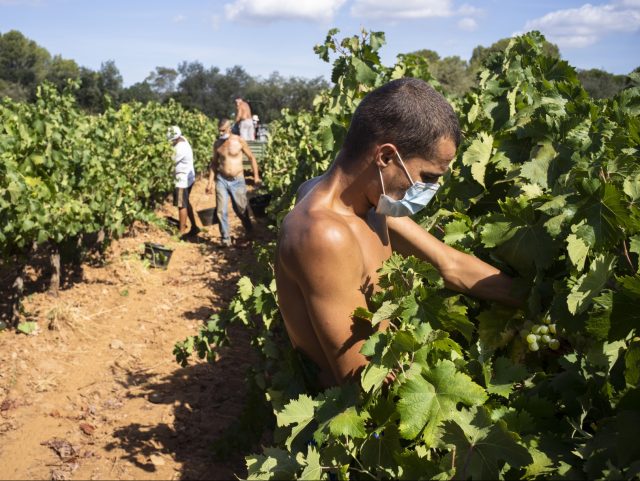In the midst of a global food crisis, a report from environmental org the WWF has slammed the EU for its lack of food self-sustainability.
A lack of self-sustainability is currently plaguing EU food production in the midst of a global food crisis caused by the Ukraine war, a report published on Monday claims.
According to a report published by the WWF, the way the EU is currently producing food is jeopardising the bloc’s ability to feed people at home and abroad, with the union importing resources in a way that the NGO claims is unsustainable while exporting goods which are not conducive to keeping world hunger at bay.
While the document titled “Europe Eats the World” spends significant time harping on about Great Reset-adjacent policies to do with climate change such as pushing for Europeans to eat less meat, it also takes time to outline issues to do with production issues and food waste which will make keeping Europe and beyond fed more difficult.
For example, while the report repeats claims that the transnational bloc is overly reliant on imported animal feed and fertiliser, it also claims that a lot of the imported fertiliser goes towards growing crops used for more animal feed, reducing the total output of the 27-member state organisation.
The report also notes that while the bloc represents one of the biggest exporters of agri-products economically, the report claims that a significant proportion of these exports are expensive luxury goods, like alcohol and chocolate, which are not conducive to keeping other nations fed.
“Currently we are the expensive supermarket, not the granary of the world,” one member of the organisation reportedly told Der Spiegel. “In many countries around the world, people need grain, not corned beef and chardonnay.”
What’s more, the report claims that when the EU does export nutritious produce like meat products, it can often undermine local producers, and as such do more harm than good in the long term.
Agricultural Great Reset: Crop Gene Editing Can Help Fight Food Insecurity, Experts Claimhttps://t.co/QaYchOzjCL
— Breitbart London (@BreitbartLondon) May 19, 2022
The report concludes that increasing the percentage of grown food ending up in the mouths of Europeans is likely the best way to alleviate pressures caused by the Ukraine crisis, though for environmental reasons, the organisation doesn’t seem to be encouraging the bloc to bump production.
In this sense, it looks like the UK is going to take a slightly different approach to curbing the effects of any forthcoming supply chain issue, with government officials telling The Telegraph that they are going to push through legislation which would accelerate the production of gene-edited crops in the hopes of bumping yields.
“Precision technologies allow us to speed up the breeding of crops that have a natural resistance to diseases and climate change, and better use of soil nutrients so we can have higher yields with fewer pesticides and fertilisers,” Environment Secretary George Eustice is reported as telling the publication.
“Water scarcity is a coming challenge with climate change, and this technology could therefore be imperative to global food security,” he went on to say.
The move will likely greatly annoy Scotland’s leftist Europhile government, which has previously demanded that Westminster not press on with such legislation for fear it would distance the country from EU regulations on the issue.

COMMENTS
Please let us know if you're having issues with commenting.